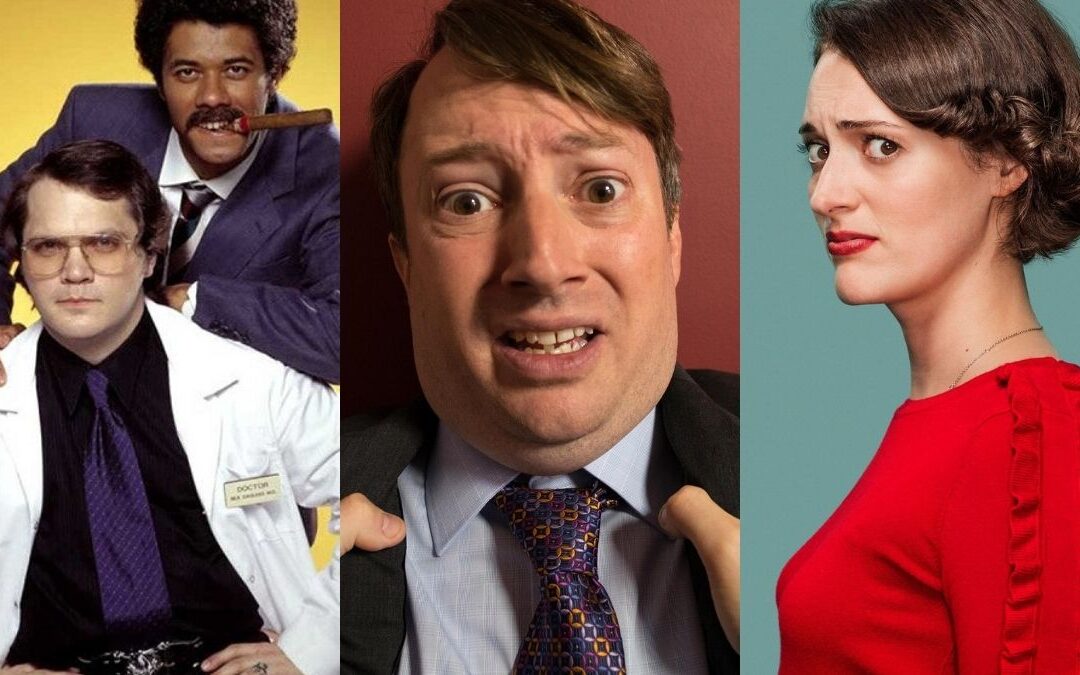What a century it’s been for British comedy. The apparent move away from traditional comedy setups, changes in taste and social acceptability, the proliferation of panel shows and output determined by budgetary constraints, followed by the rise of YouTube and video streaming all should’ve sounded the end for the great British sitcom. Yet here we are, many years later, and a few turkeys aside, it’s seen some of the best British comedies yet.
In this list, I’ve gone for predominantly traditional sitcoms in an attempt to narrow the field a bit, and enforced the cut-off point as starting at the beginning of a show’s run, so something like I’m Alan Partridge is excluded because it started in the 90s.
It’s of course a subjective list, but I’ve tried to avoid pure self-indulgence. That said, I can’t bring myself to include shows like Miranda and Mrs. Brown’s Boys just because of their inexplicable popularity. I have my limits.
1. Black Books
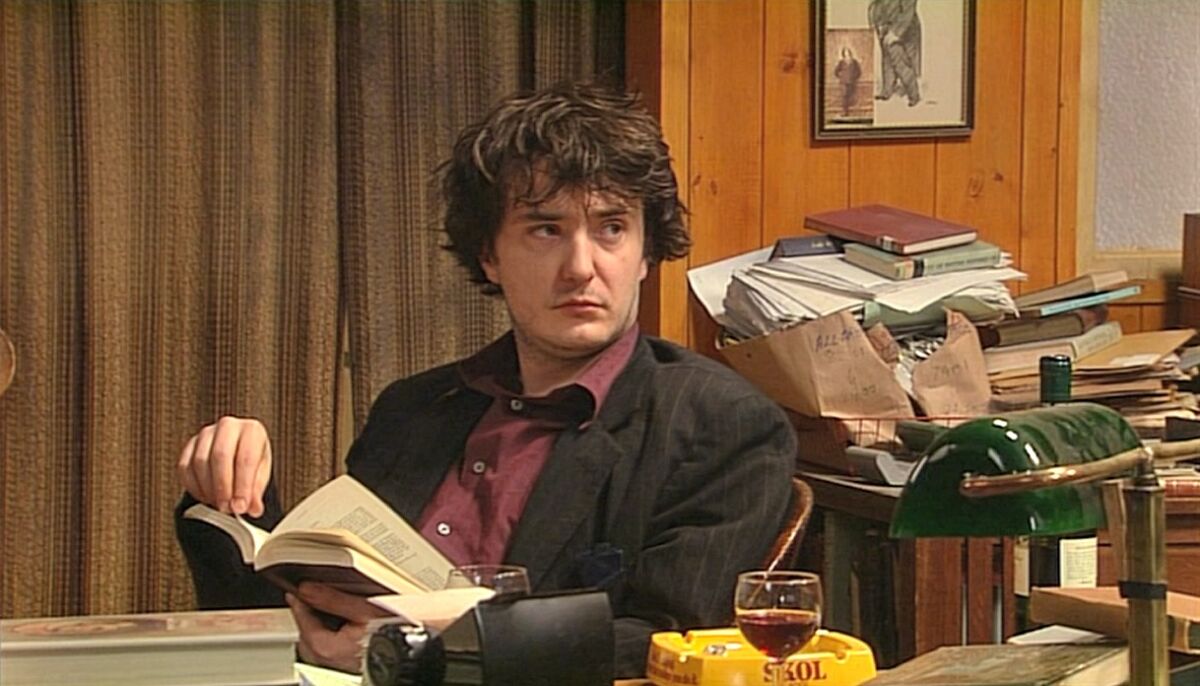
Like almost all of Graham Linehan’s work, Black Books is built on classic comedy dynamics and easily-recognisable character types. Proceedings revolve around mismatched triumvirate Bernard Black, owner of the show’s eponymous book shop, his maligned assistant Manny (Bill Bailey) and his directionless long-time best friend Fran (Tamsin Grieg). In typical Linehan style, the cast superficially occupy different ends of the personality spectrum, but what’s clear is that each one is as dysfunctional and clueless as the others.
While many sitcoms revolve around characters actively straining to achieve something in life, such as Only Fools revolving around the acquisition of wealth or Keeping up Appearances centring on a desire for the attainment of middle-class respectability, episodes of Black Books often hinge on Bernard’s futile attempts to avoid participation in the real world, contrasting with Fran and Manny’s desire for some form of social stimulation. It’s a fantastic show, clever and intimate and loaded with Linehan’s signature humour. While some believe it’s his strongest work it’s almost certainly one of his least appreciated, especially when considered alongside Father Ted and The IT Crowd.
Of course, the supporting cast is strong and most episodes feature an embarrassment of great one-off characters (Simon Pegg and Kevin Eldon have particularly exceptional cameos), but Dylan Moran’s Bernard dominates proceedings, his unique brand of misanthropy striking a particularly strong chord with British audiences. It’s a joy to watch Bernard eschew the woes and responsibilities of his job and the wider world in increasingly imaginative ways, his shambolic, chaotic energy a testament to how many of us so often feel when forced to accept daily responsibilities.
Black Books has maintained a quiet but determinedly steady popularity, likely down to Bernard’s eternal appeal to audiences who empathise in wanting the world to just leave them alone.
2. Detectorists
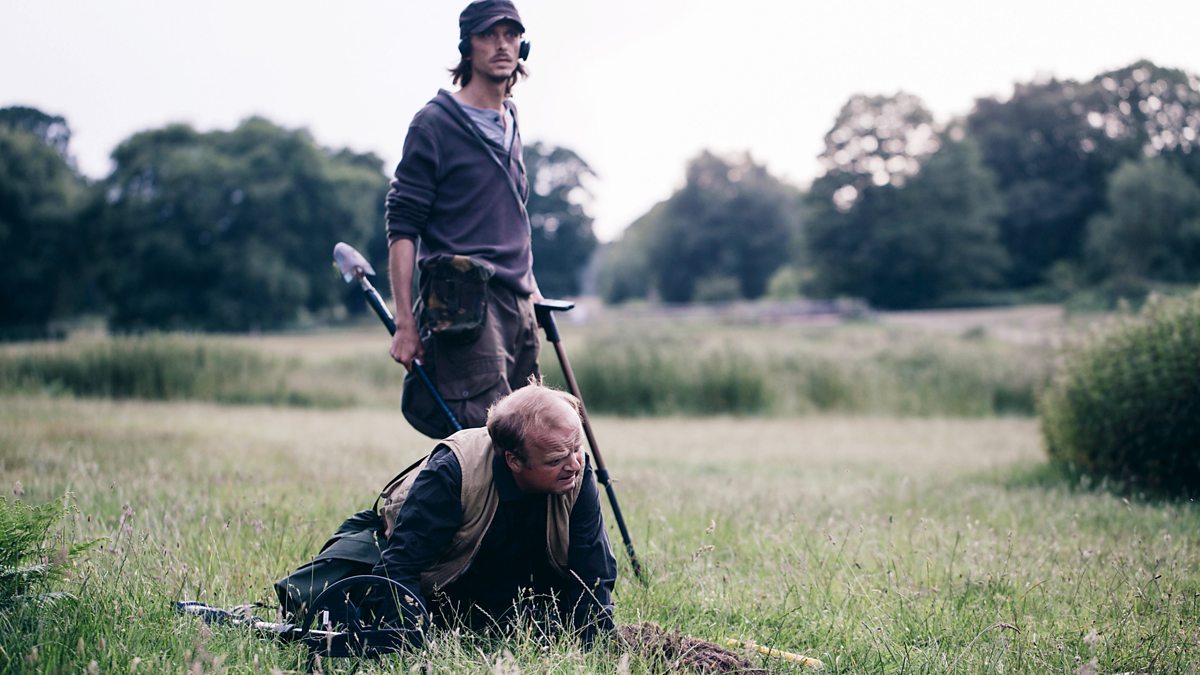
You don’t meet many people who have actually seen Detectorists. Yet when you do, you’ll soon know about it.
Detectorists has managed, quite ironically, to remain undetected by the mainstream since it was first broadcast on BBC Four in 2014. Written and directed by Mackenzie Crook who also stars alongside the peerless Toby Jones, Detectorists follows the lives of two middle-aged metal detecting enthusiasts as they go about their esoteric hobby and deal with the problems of everyday rural life.
The show sounds like a bit of a slow-burner, and there’s no doubt that, like its subject matter, it requires a degree of patience to get into, but slowly and surely you’ll find yourself absorbed in its perfectly crafted little world, enamoured by the strength and sincerity of its lead performances and completely drawn in by Crook’s pitch-perfect writing.
I won’t give too much else away, suffice to say you could write a philosophical thesis on Detectorists. There’s a particular scene in which Crook’s character dismisses investigating a potential dig because it’s likely junk, to which Jones replies ‘what if it’s not just another ring pull?’ which could be seen as a commentary about missing the chances that you don’t take, about all that exists in the world that cannot be seen, about the endless power and torment of hope, about finding beauty in the dankest, dirtiest places, about searching for joy in the past and our connections to our own eternal history.
Or you could watch Detectorists for what it is. A nice show about two blokes going metal detecting.
3. Fleabag
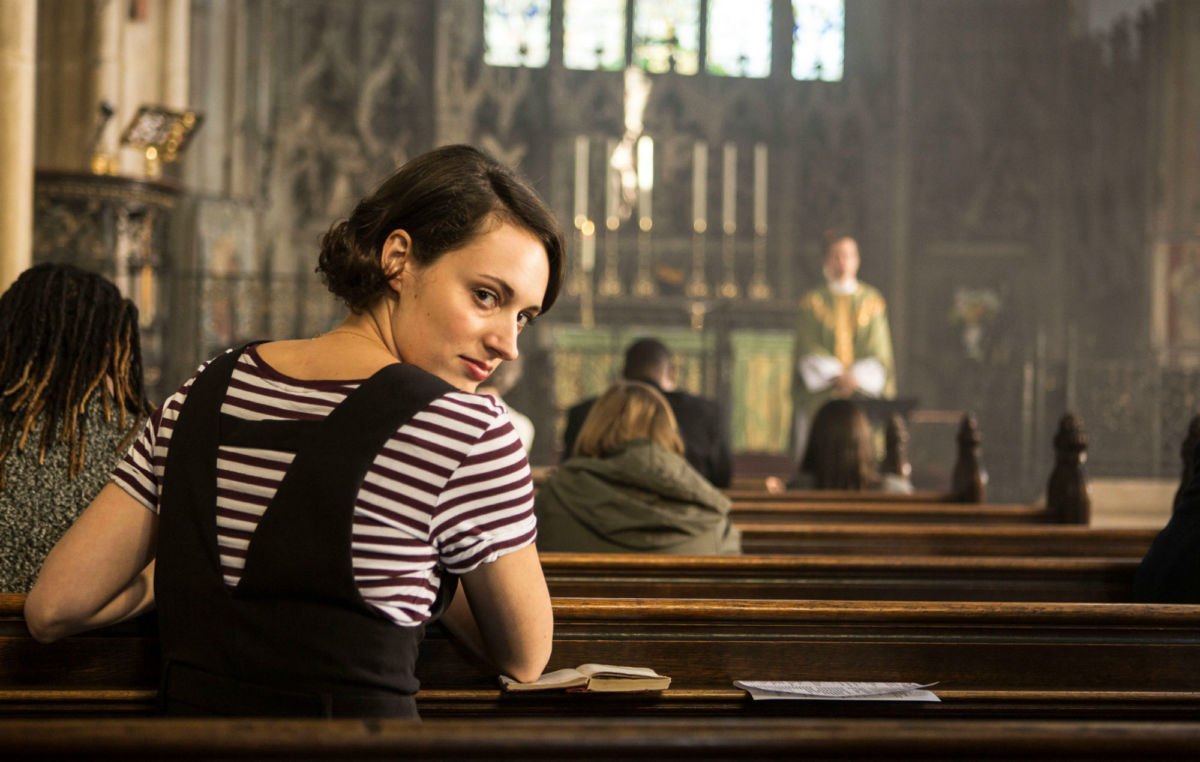
The religious themes and iconography which are so integrally interwoven into the fabric of Fleabag have become startlingly apt as metaphors for the show’s public and critical reception. Read the reviews and you’d be forgiven for thinking that creator Phoebe Waller-Bridge is the second-coming of Jesus. For many, she’s not far off.
Fleabag has been a phenomenon, a show praised and adored for its brutal honesty, its razor-sharp writing, and the complexities and nuances it finds in the challenges of a woman beset by grief. But what has really drawn audiences to Fleabag is that it is unrepentantly female. There’s no explicit ‘target audience’ and I know as many men who are enamoured with the show as women, but Fleabag is about womanhood, digging into a woman’s mind and seeing through her eyes to offer an outlook so often unseen in traditional mainstream comedy; how women cope with the world and their place in it.
Yes, movies like Bridesmaids had proudly evidenced that the ladies can match the vulgarity and dysfunctionality of the lads, but nothing has come close to explaining the complexities of the female experience the way Fleabag does. As a female viewer, I’m sure Fleabag feels like a joyous affirmation. As a male viewer, it often feels like a startling education.
4. Friday Night Dinner
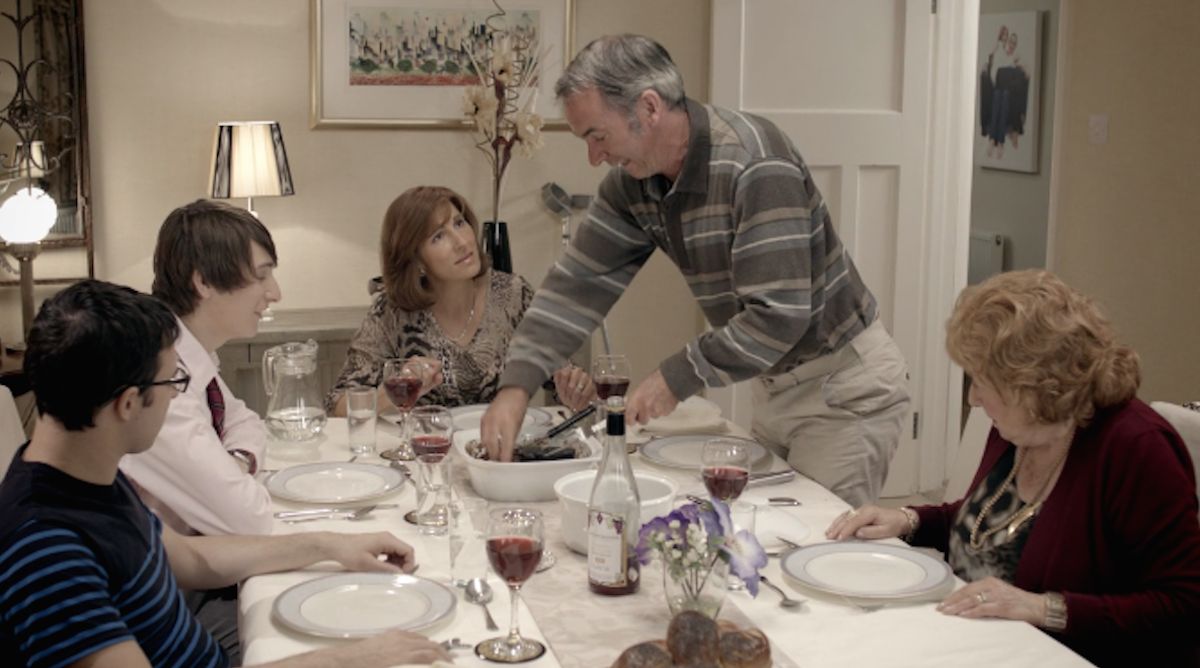
It would have been impossible to omit Friday Night Dinner from this list.
The show revolves around a secular Jewish family gathering together on Friday nights and attempting to enjoy a nice quiet meal which is usually disrupted by the childish sibling antics of their two grown-up sons, the eccentric behaviour of father Martin or the intrusion of some external agent, usually in the form of Mark Heap’s strange neighbour Jim and his German Shepherd, Wilson.
What started as a relatively small affair on Channel 4 has become one of the channel’s most popular comedy offerings, so much so that many of the show’s catchphrases have found their way into the popular British lexicon. Mix within certain circles, and you’ll never be too far from hearing a ‘Shalom, Jackie’ or a ‘lovely bit of squirrel’. Few shows make such a dent in the public psyche.
Channel 4 called time on its run before the untimely passing of its star Paul Ritter, who played patriarch Martin, but it’s rare for a British sitcom to ever gain the popularity and backing required to achieve six whole seasons. There may be detractors who resist its suburban antics, but there’s no point arguing the show’s legacy as one of the best British comedies of the 21st century. Friday Night Dinner has shown that there is certainly a great deal of life left in the traditional British sitcom.
5. Garth Marenghi’s Darkplace
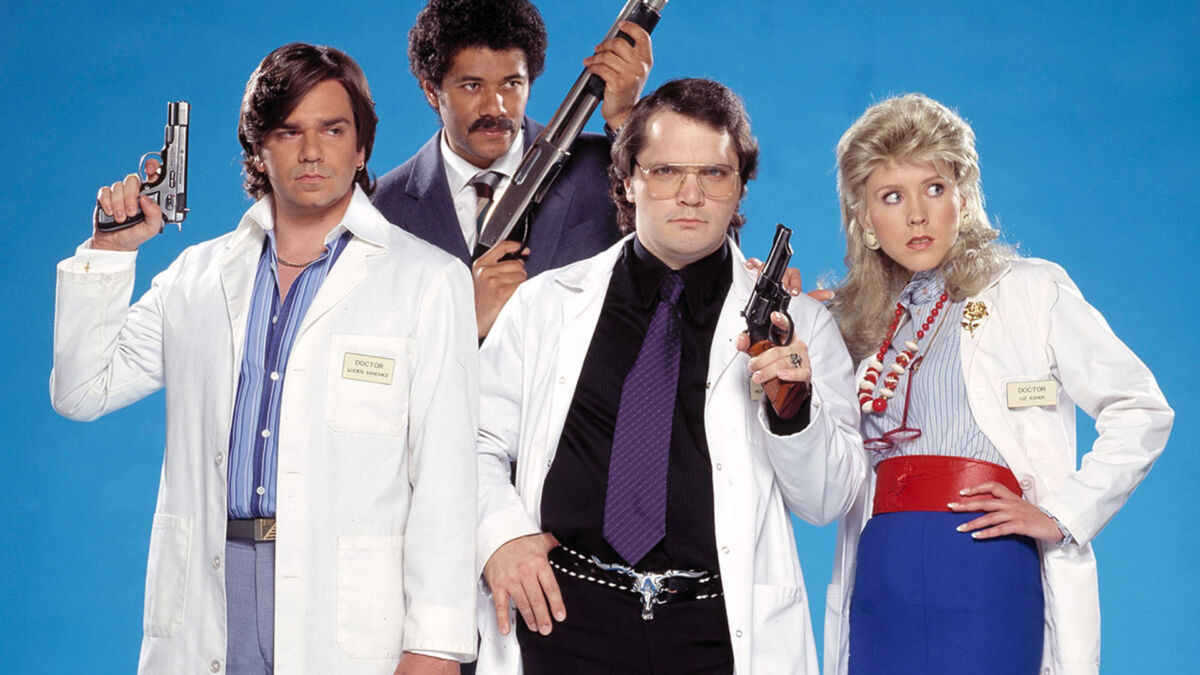
Garth Marenghi’s Darkplace suffers from a strange existential paradox where it is cited as underrated and unknown so often that it’s now gained a huge cult following of people constantly citing it as underrated and unknown. In fact, say ‘cult sitcom’ and it’s likely the first show to come to mind.
Garth Marenghi’s Darkplace is the name given not only to the sitcom itself but also to the parody show within it, a low-budget 80s sci-fi series set in a hospital beset by paranormal activity. The genius of creators Richard Ayoade and Matthew Holness is producing a convincing genre send-up without actually falling foul of simply recreating a poor example of the genre it pastiches, always walking the line between convincing reconstruction and self-aware parody. It may have struck a chord with viewers who had grown up watching badly-acted, underfunded 80s TV late at night, but anyone with a basic interest or understanding of usual dramatic conventions will find themselves able to tune into Darkplace’s peculiar antics without much difficulty.
Also well worth a watch are the DVD extras, in particular the behind-the-scenes interviews with the show’s fictional cast. Darkplace also spawned the lesser-known spin-off chat show Man to Man with Dean Learner, where Richard Ayoade’s cigar-toting, woman-chasing host and nightclub owner was allowed to take centre stage. It was never up there with the parent which spawned it, but it too is well worth a look.
6. Green Wing
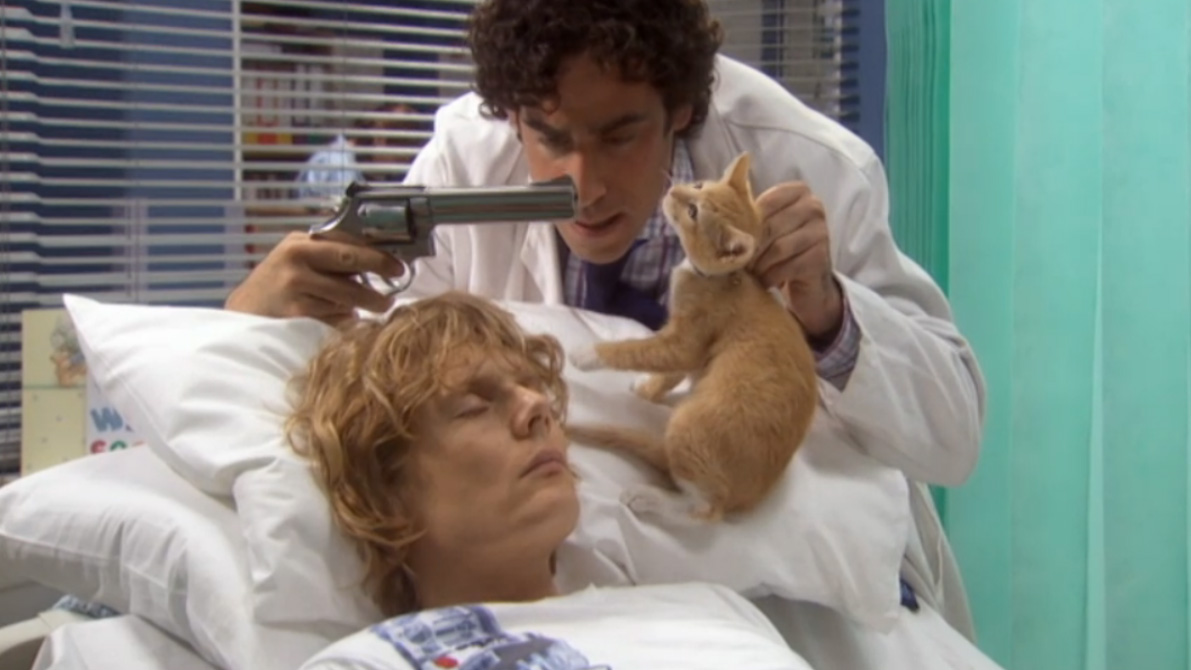
Green Wing is one of the most recognisably absurd British comedies ever, its surreal, offbeat flavour, exaggerated character archetypes, whacky editing and broad physical humour magnified up to such an extent that they arguably came to define the show more than the storylines or even characters themselves.
Set in a hospital and following the lives of an eccentric roster of staff, it only ran for two seasons but left an enduring comic legacy. Unusually, episodes last 40 minutes or so, although given the constant levels of elasticated time bending and wacky visuals, the show’s thinly-stretched plot arches could easily be resolved within the standard confines of six 30-minute instalments. It’s a format which has delighted some and frustrated others, yet it’s hard to imagine Green Wing without its signature visual style.
There is a loose narrative running through the show, mainly concerning newbie Dr. Todd’s romantic love triangle between charismatic surgeon Mac and manipulative anaesthetist Guy, but the show often plays like a series of sketches, reverting back to the same character dynamics and setups to embellishing the central narrative arc. It’s often pure self-indulgence, but self-indulgence is essentially the definitive characteristic of Green Wing. Just as the hospital’s fictional staff spend more time dicking around than actually getting on with any work, so does the show itself.
There’s a massive roster of characters brought to life by the mid-2000s dream team of comedy casts, and although it’s unfair to single out anyone for particular praise, the world is not fair. Of all Green Wing’s oddball cast, sex-crazed powder keg Dr. Alan Statham, lascivious anaesthetist Guy Secretan, and psychotic Scottish staff liaison officer Sue White stand above the rest as truly great comedy creations.
For all the critical praise the show has received, it remains polarising among comedy audiences, yet one could certainly never accuse Green Wing of being generic. For better or worse, it struck out into ambitious new territory, and for that it earns its place on this list of the best British comedies of the 21st century.
7. The Inbetweeners
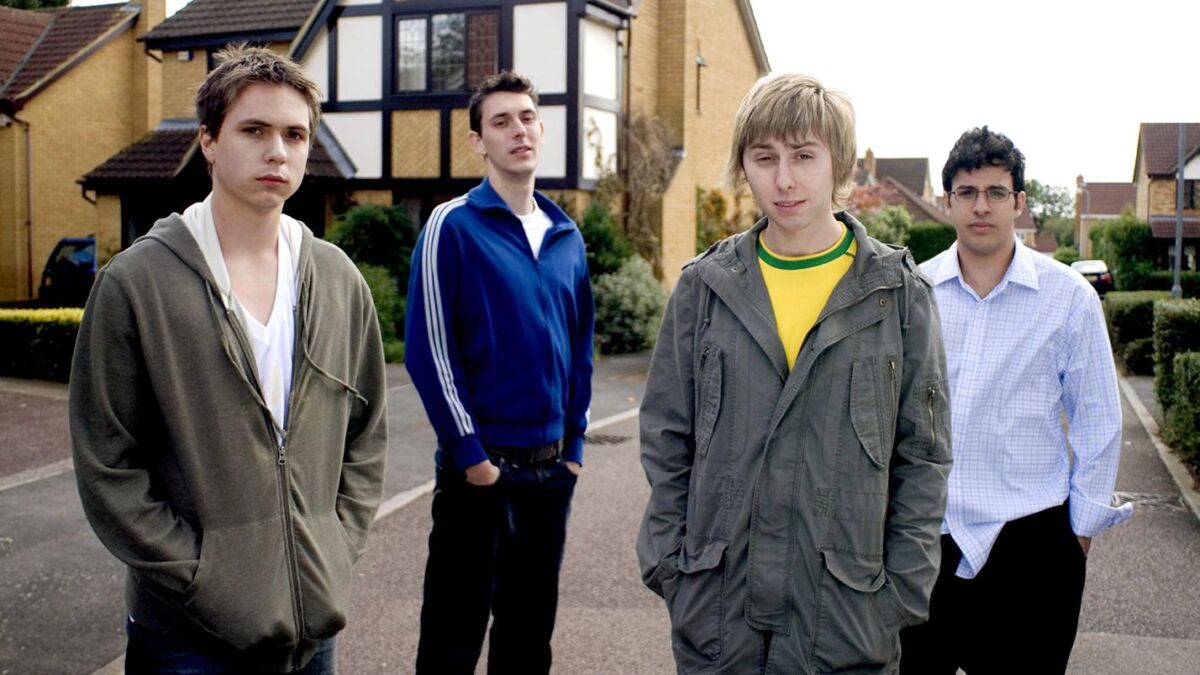
It’s interesting to see how The Inbetweeners is already being retrospectively judged by a new generation of viewers. There are of course elements of the show which resonate more with that generation of students who grew up with Will, Jay, Simon and Neil, and the frequent use of terms like ‘bender’ might shock a new generation of comedy fans (and delight others), but there’s no doubt that this adolescent comedy remains one of the funniest, most insightful, most relatable pieces of television of the 21st century.
The Inbetweeners encapsulates right in the title what it meant to be part of that great mass of schoolchildren who never quite knew their place. Not quite a jock, not quite a nerd, most of us can recognise so much of ourselves in one or all of its heroes, although hopefully not when they masturbate in an old peoples’ home or punch innocent fish to death on a boat.
The Inbetweeners works because it’s an affectionate, uncynical portrait of such a unique and important part of every person’s life to which most of us desperately wish we could return. Amid all the jokes about masturbation, bodily fluids and adolescent hormonal anxiety, its focus never strays from those things which actually define one’s teenage years; friendship, belonging and the freedom of youth. And soiling yourself during your A-levels.
8. The IT Crowd
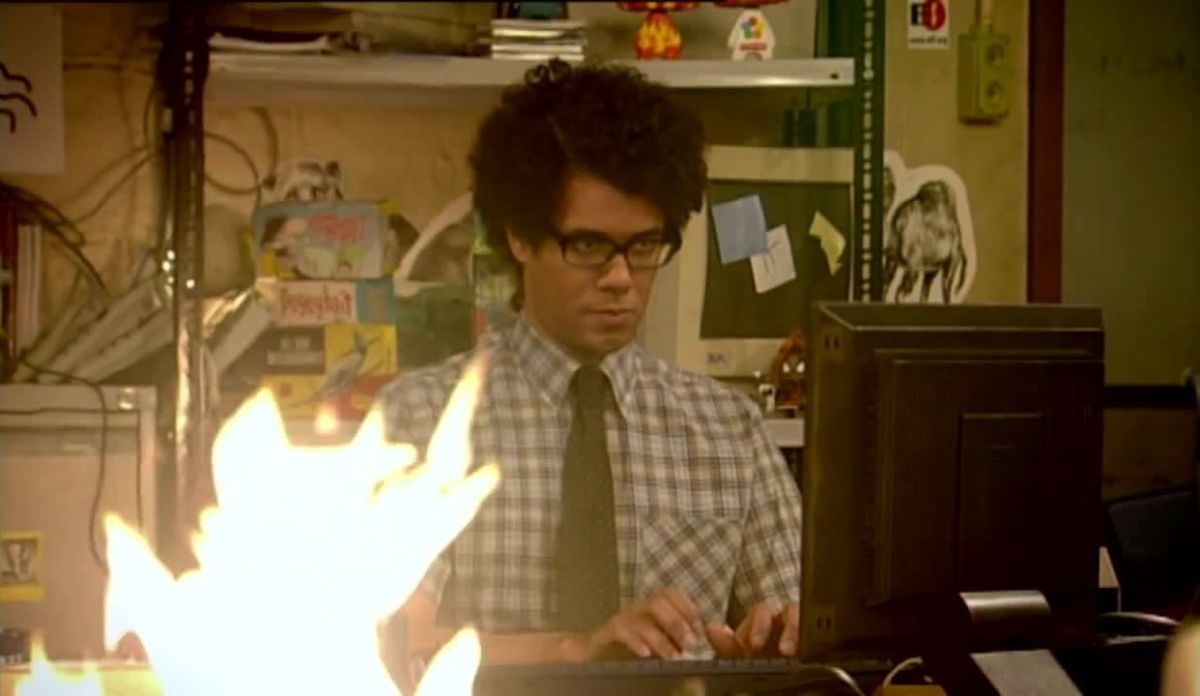
For all my eulogising about the subtle interpersonal drama of The Office or the existential beauty of Detectorists, The IT Crowd is relatively straightforward by comparison. Comedy can do so many things and teach so many lessons, but it’s defined at its essence on whether or not it’s funny. The IT Crowd is certainly that.
It’s a classic setup from Father Ted creator and (controversial) genius Graham Linehan, utilising stock characters and familiar tropes to extract humour from social misunderstandings and frictional dynamics. The main cast of lazy Roy, nerdy Moss and motivated but tech-unsavvy Jen is nothing ground-breaking, but Linehan has always shown himself as a man happy to lean into familiar settings and setups to extract maximum laughter.
The pleasure of The IT Crowd is that it knows what it is and doesn’t seek to be anything more, and while there are gags and situations which are knowing in their clunkiness (such as a scene where an interfaith tour of the Reynolm Industries basement leads to a Rabbi, Priest and Imam catching one character with his trousers round his ankles and then telling them to fuck off), it’s clear that this is a slow made almost solely for enjoyment.
All episodes have their great moments, and I’d recommend The Final Countdown, The Dinner Party and The Speech to any novice viewer, but it is The Work Outing which is a testament to Linehan’s extraordinary mastery of his craft. It isn’t just a classic episode of the show, it also stands up today as a masterclass in how to craft the perfect sitcom episode. Incredible.
9. Nathan Barley
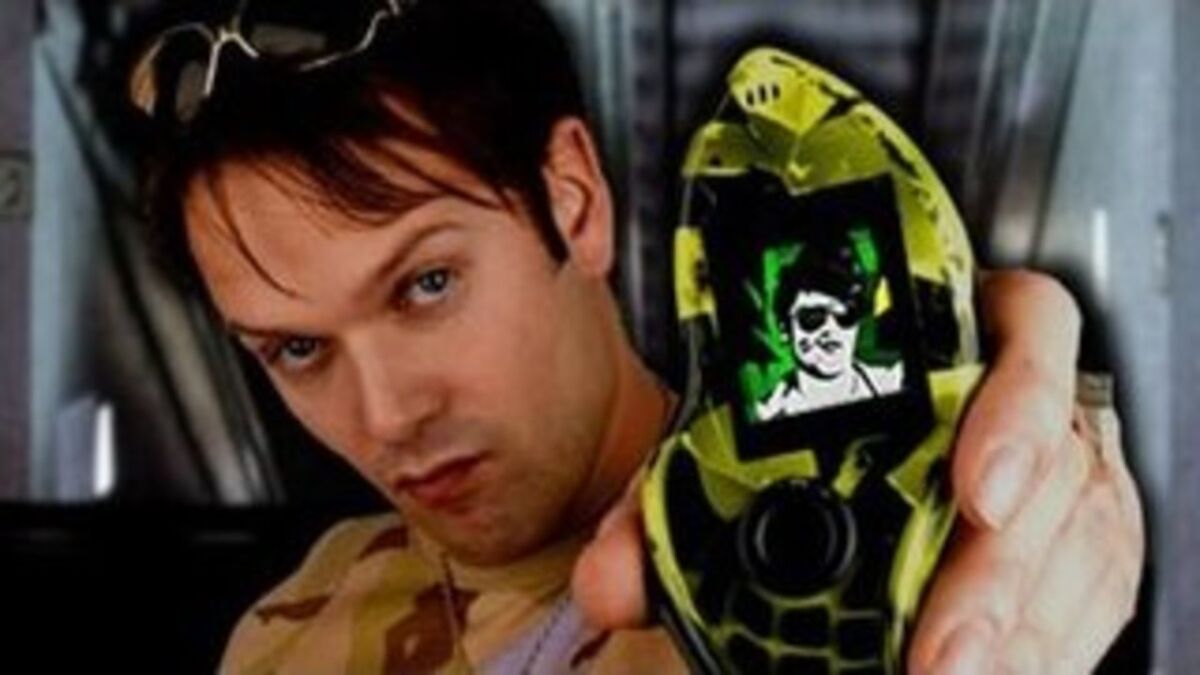
It’s remarkable that given the seismic combined legacy that co-creators Chris Morris and Charlie Brooker now share in the annals of comedy, satire and socio-political commentary that more people haven’t delved into the archive to seek out their cult sitcom Nathan Barley.
Set in the media-focused areas of East London such as Hoxton and Shoreditch, Nathan Barley is predominantly a satire on trend-chasing hipsters and proto-influencers making viral content of no particular importance and convincing themselves of their own immense worth and cultural value. While Barley is the show’s titular ‘hero’, the main story revolves around Dan Ashcroft, a burnt-out writer and journalist working for a magazine he clearly hates and surrounded constantly by the exact people he decries, many of whom are now convinced he is their new Messianic leader, oblivious to his loathing and scorn.
It’s a delight to watch the moronic inhabitants of Barley’s world creating what they sincerely believe to be cutting edge content and participating in the latest ludicrous London fads, such as dining at restaurants which analyse the blood’s ‘mineral balance’ to ascertain what to eat, but the show is best when exploring the human drama of its protagonists. The satire of publishers and vloggers creating content such as ‘A4 Sounds, a concept album about the various sizes of paper’ never gets old, but the core of the show is Dan’s determination to distance himself from a world which he himself is inherently a part, thinking himself above the local crowd but contributing little to his work and often sacrificing his principles to make ends meet.
Nathan Barley remains an ever-relevant critique about those helpless souls constantly chasing an intangible zeitgeist, and those ever more helpless souls who sullenly attempt to resist it. We may not have quite the same media that Nathan Barley was operating with, but can you truly look around and tell yourself that those insufferable, self-obsessed, trend-chasing, egotistical infections of the internet haven’t survived and mutated into a new breed of vapid Instagram influencer, vulgar TikTok star, or wannabe YouTube prankster?
10. The Office
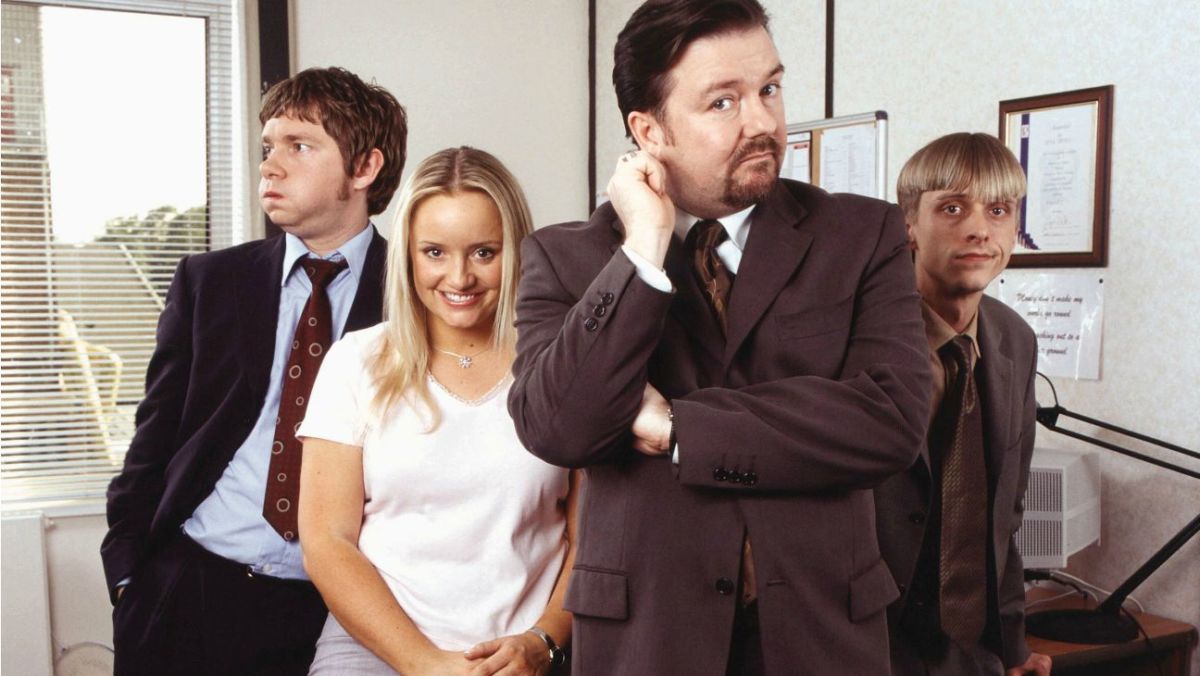
Very few shows in the history of British television have enjoyed the acclaim and success of Ricky Gervais and Stephen Merchant’s creation The Office. Its American counterpart may have found extraordinarily ubiquity among a new generation of comedy fans, but it’s The Office UK which has been responsible for transforming the perception of what a great sitcom can be.
Generally, British comedies have retained their key elements of farce, and although there’s always that strong tradition of social commentary and cutting satire, usually there wasn’t much deviation from the established focus on broad gags, exaggerated physical humour and set-up-knock-down punchlines. The Office was completely transformative, a subtler, more naturalistic mockumentary which proved that humour and drama could be found in the unlikeliest of places – the mundanity of a Slough paper merchants, for instance.
There are so many reasons to gush over The Office, but its strengths lie in its flawless script and perfectly balanced cast of characters, each one a beautifully observed composite of every insecure wannabee-squaddie or unappreciated creative flower stuck in a dead-end job. Brent of course stands alone, one of the most iconic comedy creations ever, up there with Fawlty, Partridge and Trotter, mainly because almost all of us have known a form of Brent in our time. It’s unlikely you’d ever walk into a hotel and find it teeming with Basils and Manuels, but Gervais encapsulates that peculiar British archetype of a man always thinking himself so much funnier and more popular than he actually is.
David Brent is completely three-dimensional, and as the show progresses our understanding of his desire to be accepted and liked in a mundane world with which he is completely out of step renders him as tragic as he is comic. Tim and Dawn may be a classic love story. But the show’s greatest achievement is making us care about David Brent.
11. Peep Show
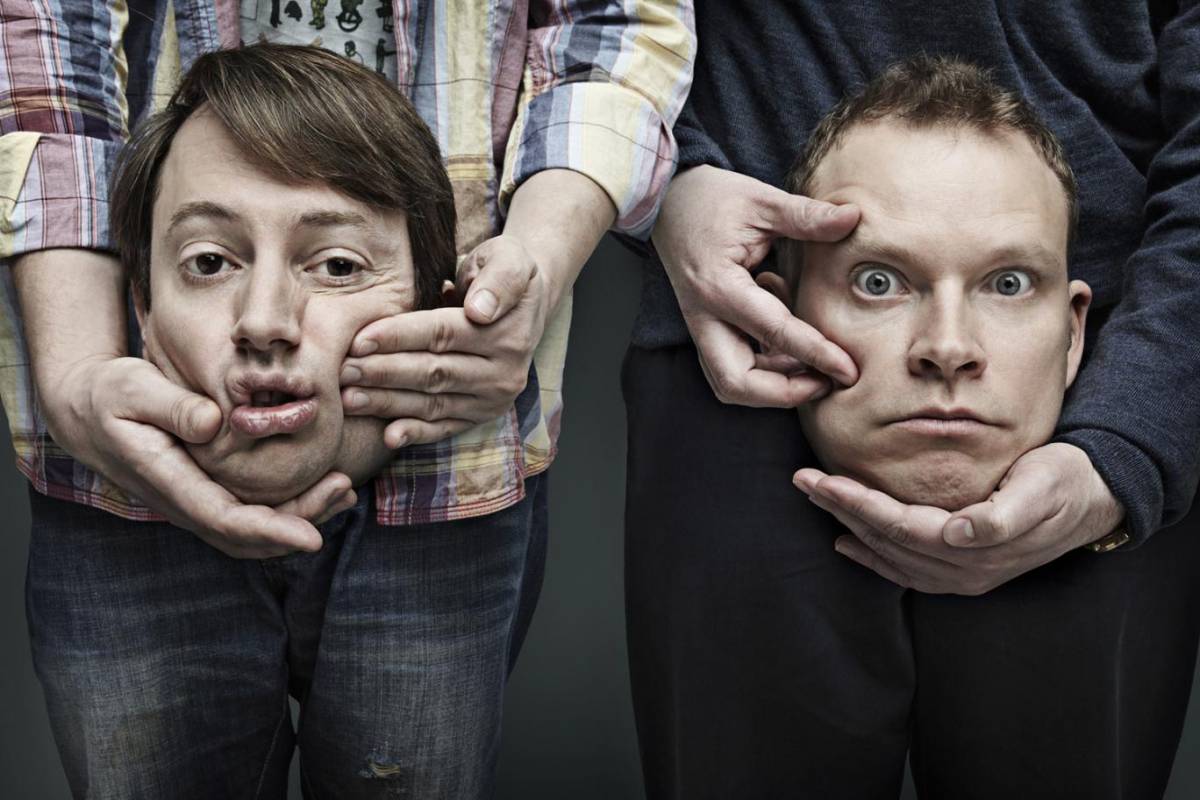
Sam Bain and Jesse Armstrong’s Peep Show quietly trundled along on Channel 4 from 2003 until 2015, making it one of the network’s longest running comedy releases, without ever establishing a large mainstream audience. The show followed Mark and Jez, played by David Mitchell and Robert Webb respectively, as polar opposite 20-to-30-somethings living in London and trying to find their own warped versions of happiness despite being as clueless and dysfunctional as each other.
It’s billed as a comedy, but if you take the jokes out of Peep Show what you’re left with is a psychological horror. It’s hilarious, no doubt, but it’s also an unrelentingly bleak portrait of the lives of two men for whom almost nothing ever goes right. Not in a ‘my boss is coming over and I’ve burnt the souffle’ way. More in a ‘in the end, we all die alone’ way. If Peep Show were a person, its favourite band would be Radiohead and its favourite author would be Nietzsche.
Yet despite the show’s misanthropic, sometimes nihilistic outlook, it has been one of the most consistently funny things on television in the last 20 years. It’s beautifully written, as tragic and despondent as it is hilarious and honest, its plots are expertly woven and its characters are relatable and lovable, if severely misguided. Mark and Jez’s failures may be difficult to watch, but like all the best comedies, Peep Show understands people and the anxieties around social interaction, typified by Mark’s neurotic and constantly overanalytical internal monologue contrasted by Jez’s airy delusions of talent.
Ultimately, it’s a show about us, the audience, voyeuristically watching two men consistently sabotaging their own lives. No wonder they called it Peep Show.
12. Spaced
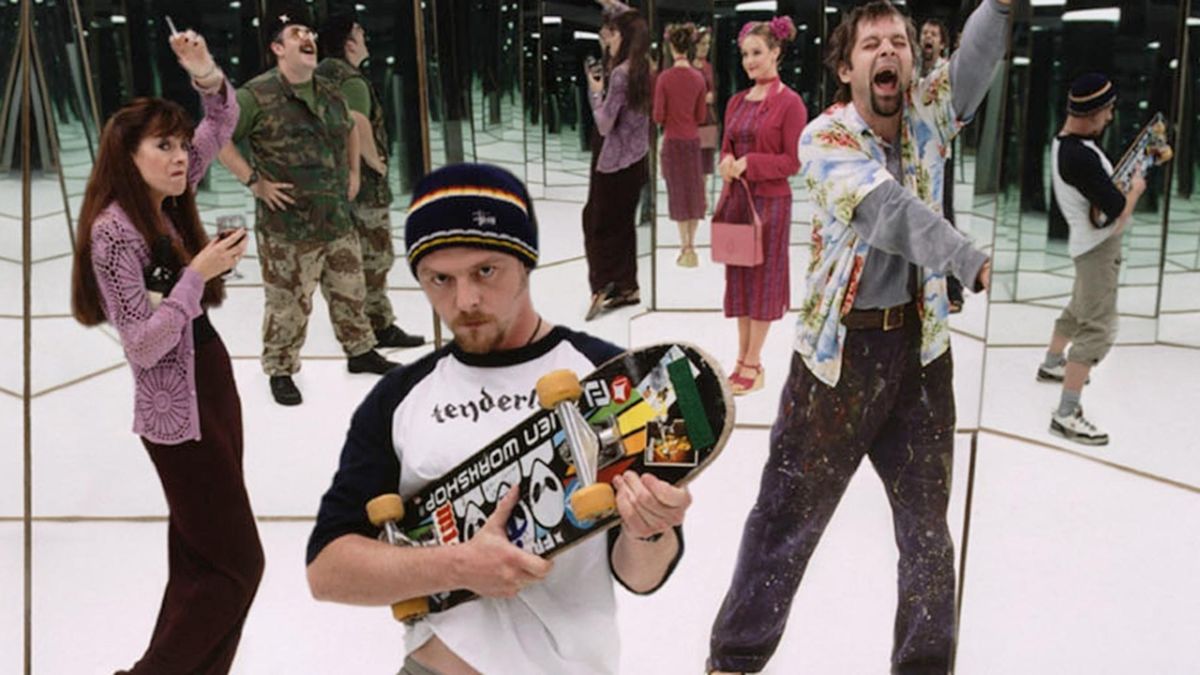
This may be a controversial viewpoint, but I sincerely believe that Spaced remains the finest work of either director Edgar Wright or writers Simon Pegg and Jessica Stephenson in their long and esteemed careers.
I genuinely love Spaced, not only because of how funny it is, how likeable the characters are, or because it reminds me of a simpler, pre-Brexit, pre-COVID, pre-Tik-Tok world, but because it has a small, intimately crafted feel and an unmistakably distinct identity. There are day-long, multi-episodic movie franchises which don’t have an ounce of the soul, creativity or heart that Spaced displays in a mere 12 episodes.
I think what’s so glorious about the show is that despite its reputation as a sitcom for geeks, it doesn’t seek to be cliquey or exclusive. There’s no sense that it wants to exclude you from the gag as it revels in movie references and nerd subculture. Edgar Wright’s directorial style may be ripe for gushing critiques from very knowing cinema buffs, and it’s a style which undoubtedly makes Spaced feel quirky, alive, and daring for a small Channel 4 sitcom, but it never renders the show feeling inaccessible or haughty. Quite the opposite. Coming back to Spaced is like coming home to your eccentric but loving family.
Spaced is immensely funny, but made with an unerring sense of warmth, depth and affection. It is never cynical, rarely scathing, not sitting on the fringes of the party sullenly mocking the cool kids, but rather contentedly playing Tomb Raider 3 on its old PlayStation and listening to Prefab Sprout, happy for others to join it. Ironically, Simon Pegg once described the comfort he derived from watching Gone Fishing with Paul Whitehouse and Bob Mortimer as “cheese on toast for the soul”. It is a metaphor entirely apt for his own creation.
13. The Thick of It
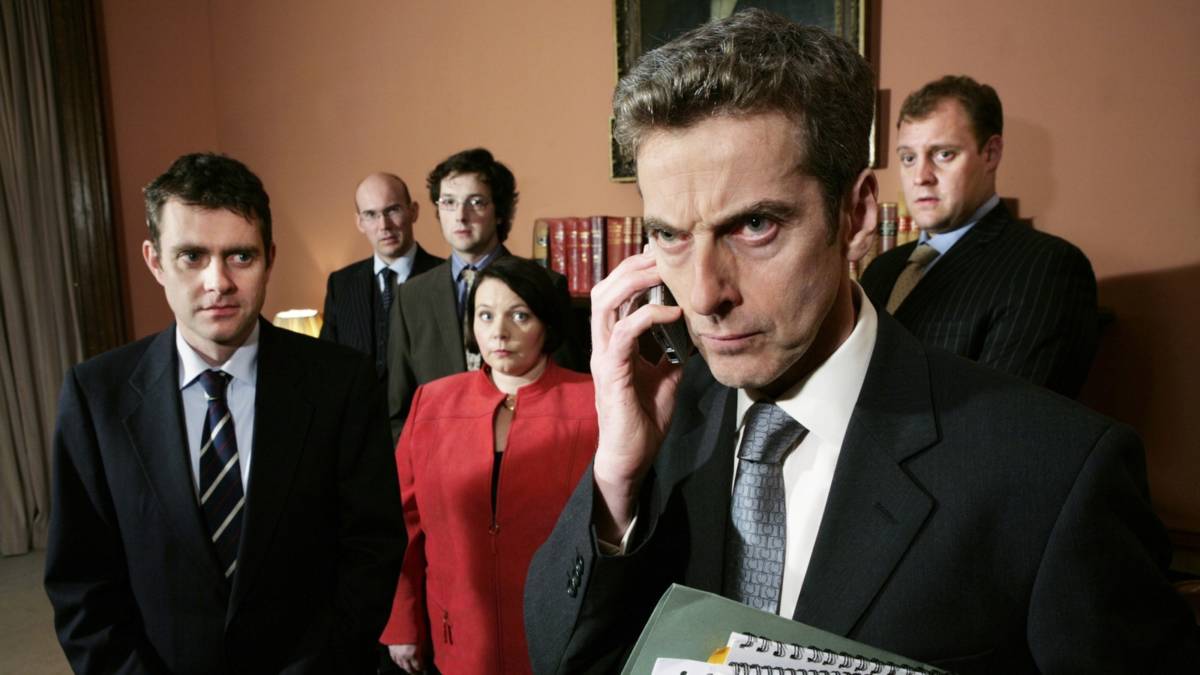
Has there ever been a show on British television whose use of language married the obscenely offensive to the beautifully articulate with quite the same elegance and satirical bite as The Thick of It? To quote the show’s notorious antihero Malcolm Tucker: “I think we should use the carrot and stick approach. You take a carrot, you stick it up his arse. Followed by the stick. Followed by an even bigger, rougher carrot”. That was practically the only quote I could find that didn’t include the word ‘fuck’.
The BBC’s dark-hearted satire The Thick of It ran from 2005-2012 on the BBC, but the critical eye it cast over the scrambled backroom running of the UK Government hasn’t diminished in its relevance. The egotists, the appeasers, the spineless yes-men, all desperately scrambling to maintain any semblance of order as they clash with their rivals under the scrutinous eye of the vulture-like media, Iannucci captures it near-perfectly. If anything, he doesn’t go far enough.
The show is constantly infused with a sense of panic and incompetence, of people trying to keep their heads above water, predominantly to save their own skin and retain their own personal integrity.
Whipping them into order is Peter Capaldi’s Malcolm Tucker, perhaps The Thick of It’s greatest gift to the world, the foul-mouthed Scot with an incredible talent for the graphically offensive and the offensively graphic. The genius of Tucker is that even when he’s screaming the sort of obscenities normally reserved for a staff sergeant with severe Tourette’s , the show is keen to point out that he is in most instances the voice of reason among the passive and incompetent members of DoSaC, the show’s fictional Department of Social Affairs and Citizenship. God help us.
14. Toast of London
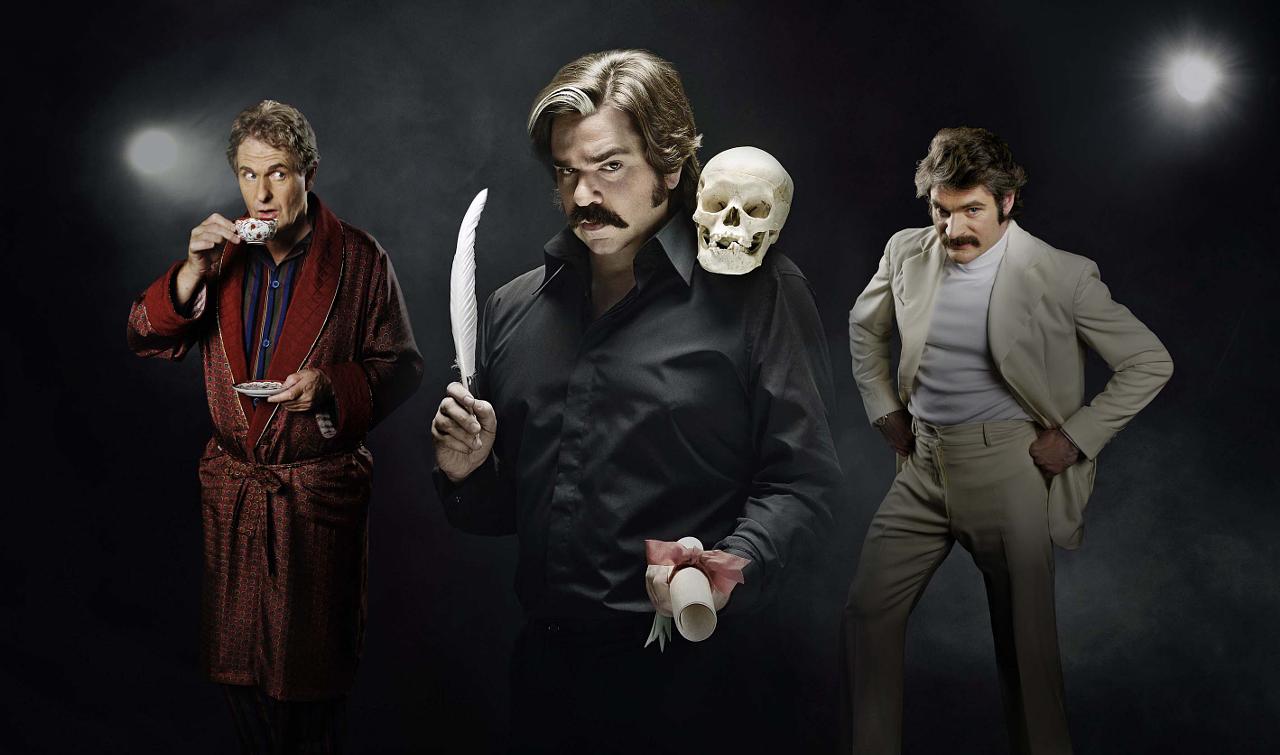
Theatrical sitcom Toast of London was a bit of an opinion splitter on first release. Rachael Cooke of the New Statesman described it “as if two sixth formers had watched a few old DVDs… and then written down the first thing that came into their heads.” Chris Harvey of the Telegraph criticised it for descending into “overblown surreality”. Conversely, The Guardian’s Sam Wollaston called it “delicious”, while David Butcher of the Radio Times loved it so much he wished he could “buy it a round of drinks”. What’s clear is that Toast of London is one of those shows people either get, or they don’t.
If you do happen to get it, the rewards are great. It’s absurdist and, much like Green Wing, prone to sheer self-indulgence, but those are characteristics which often happily go hand-in-hand. It’s a fun, childish show with a dark, cynical edge, populated by characters with names like Ed Howzer-Black, Stephen Toast and of course, Clem Fandango, pastiches all of theatrical luvvies and the awful media types who could easily inhabit Nathan Barley’s world.
If there’s one thing the world of TV and theatre loves, it’s self-referential mickey-taking, but Toast of London injects enough warped strangeness to make things fresh.
Matt Berry rules the screen as ever, but his sparring with his agent, Doon Mackichan’s Jane Plow, and his bitter rival Ray ‘Bloody’ Purchase, are where the fun is often to be found.
15. The Trip
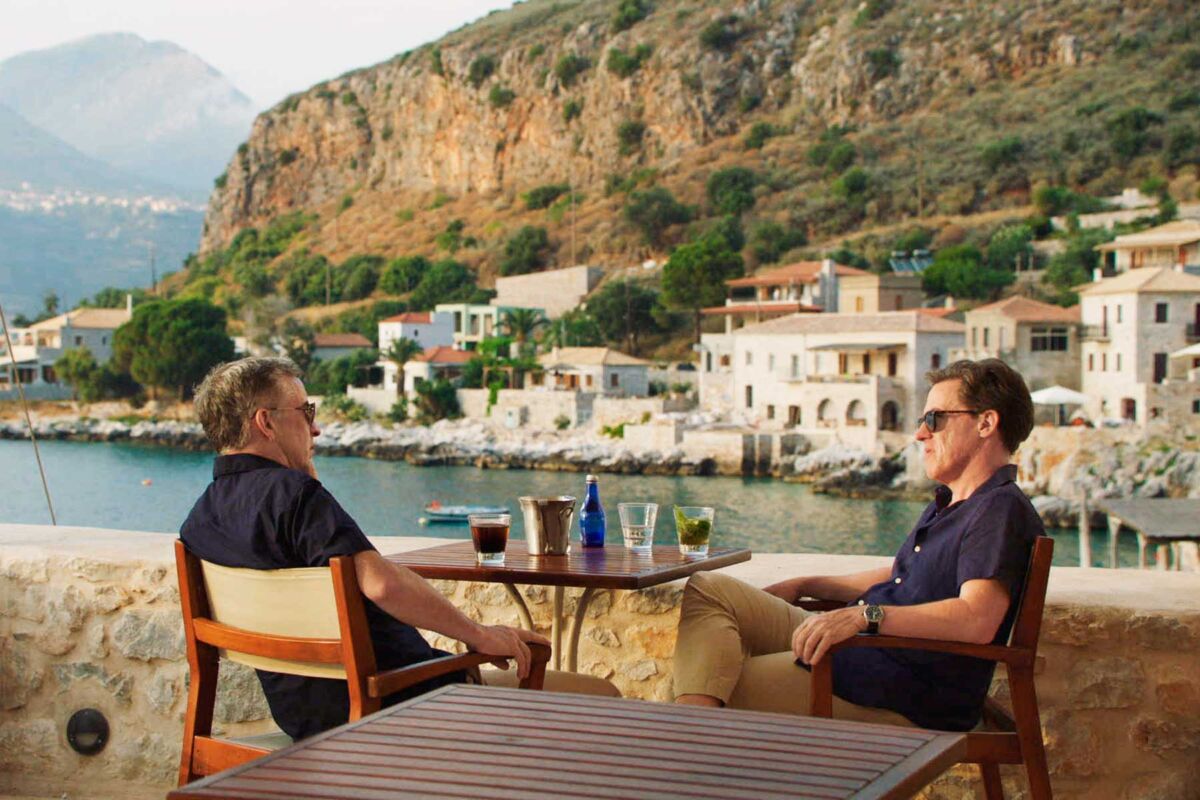
The critics were right. At first glance, The Trip sounds truly awful: two comedians on a jaunt around the North of England eating food, doing silly impressions and talking about nothing of any real consequence. Lazy, self-referential comedy for gushing, pseudo-intellectual Guardian readers. You couldn’t conceive of a more self-indulgent, self-obsessed love-in if you tried.
They were also right to call it one of the funniest things on TV.
The premise is simple: exaggerated versions of Coogan and Brydon travel around the countryside eating at fine restaurants, doing impressions and bickering, the comedic tension manifesting in the ever-fruitful Coogan / Brydon dynamic as a form of middle-aged male one-upmanship. Coogan strives for a respect he feels he will never attain, constantly exasperated by Brydon’s chirpier disposition. Coogan believes comedy must attain an artistic value, while Brydon believes things can simply be funny.
Yet despite all of Coogan’s huffing and sighing, his ego will not allow him to rise above Brydon’s playground games, and an early scene which has Steve critiquing Rob’s Michael Caine impression essentially establishes the show’s entire premise; two men in competition even if only one of them is ever really aware of it. As Coogan neatly put it; “I think I’m cleverer than Rob, but I’m not as clever as I think I am, and Rob is slightly more clever than he thinks he is, but it doesn’t matter to him”.
The first outing is the best, mainly because it’s still fresh enough to be completely original. The basic premise and storyline don’t deviate at all across four very similar trips, and the show becomes subject to the laws of diminishing returns by the time the pair are 10 years older and trekking along olive groves in Greece quoting passages from The Odyssey. Yet even at its worst, The Trip is a sun-laden, calorie-heavy joy, and at its best, one of the best British comedies you will ever come across.
READ MORE: The Best HBO Shows of All Time
Some of the coverage you find on Cultured Vultures contains affiliate links, which provide us with small commissions based on purchases made from visiting our site.
